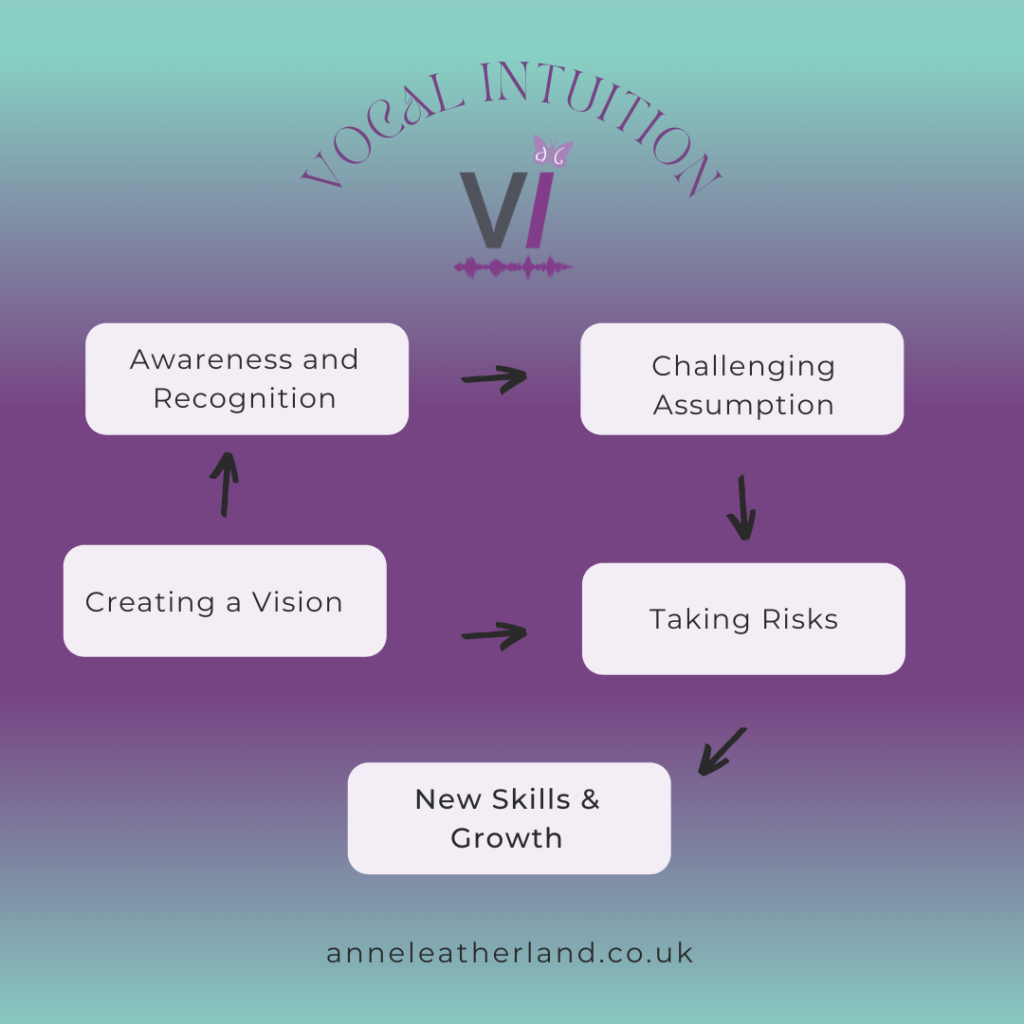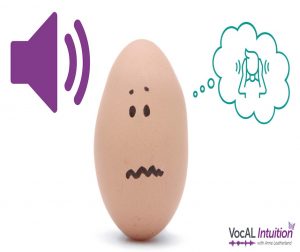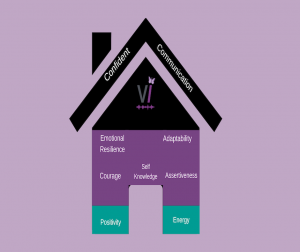Having “vocal intuition” may be something that hasn’t crossed your mind. It crosses my mind every day of course because that is the name of my company and was chosen to reflect how I help my clients. I’d like to tell you a bit about what it means and how it could help you.
What is Intuition?
Usually, “intuition” is defined as a kind of instinct; something that we understand from deep within and that we don’t have to think consciously about. You might also call it a “gut reaction”.
If you think about your voice and how you use it every day, you will realise that much of what you do is instinctive. Your voice is intrinsically linked to who you are as a person; your hopes, joys, sadnesses. Now, this is great, because it means that you have the capacity to communicate on many levels with others. Your voice will be heard by those you speak (or sing) to and they will take messages from the pitch, pace, tone and other aspects of your voice. This is intuitive.
When learning something new, you would want the new skills to become automatic and intuitive as well.
Vocal intuition and beliefs
Sometimes your beliefs and fears can replace your true intuition. This happens when you feel out of your comfort zone, in either a learning or performance situation. So, your voice reflects the difficulties and you don’t learn or perform as well as you might.
How can we deal with this? Have a look at the diagram below. I’ll then explain it in more detail.

Five Steps to Vocal Intuition
- Creating a Vision: This means working out where you want to go. What do you want to learn to do or to improve? How do you want your voice to sound? Visualize it clearly. Hear it in your mind. In detail.
- Awareness and Recognition: Notice what you would like to improve. Then start to decide how to do that i.e. what steps you need to take. Make a plan.
- Challenging Assumptions: This is where you reframe your “I can’t do that” for “What if I could, what would that be like? What would I do?”. Your past negative experiences can hold you back. Don’t let them.
- Taking Risks: Let’s face it, putting ourselves “out there” vocally can be scary. That’s okay, as is making mistakes. If you’re open to new things and gradually take on new experiences you can make that journey, step by step.
- Growth/New Skill: You will now have grown both personally and in terms of your vocal skill. With practice to embed the new ideas and changes they will eventually become part of what you do. They will become intuitive. You will have developed your vocal intuition.
Getting Started
So, you can see that there is a pathway to follow. You can become more intuitive in your voice use, without allowing your limiting beliefs to hold you back. You may need help to do this, but you can start with that vision straight away.
If you’d like to explore any of these ideas further please do get in touch and I’d be happy to chat. You can also catch me live every other Saturday on Facebook at 11.00am or alternate Wednesdays on Linkedin at 12.30pm talking about a range of voice-related topics. Why not pop in and join the discussion.




